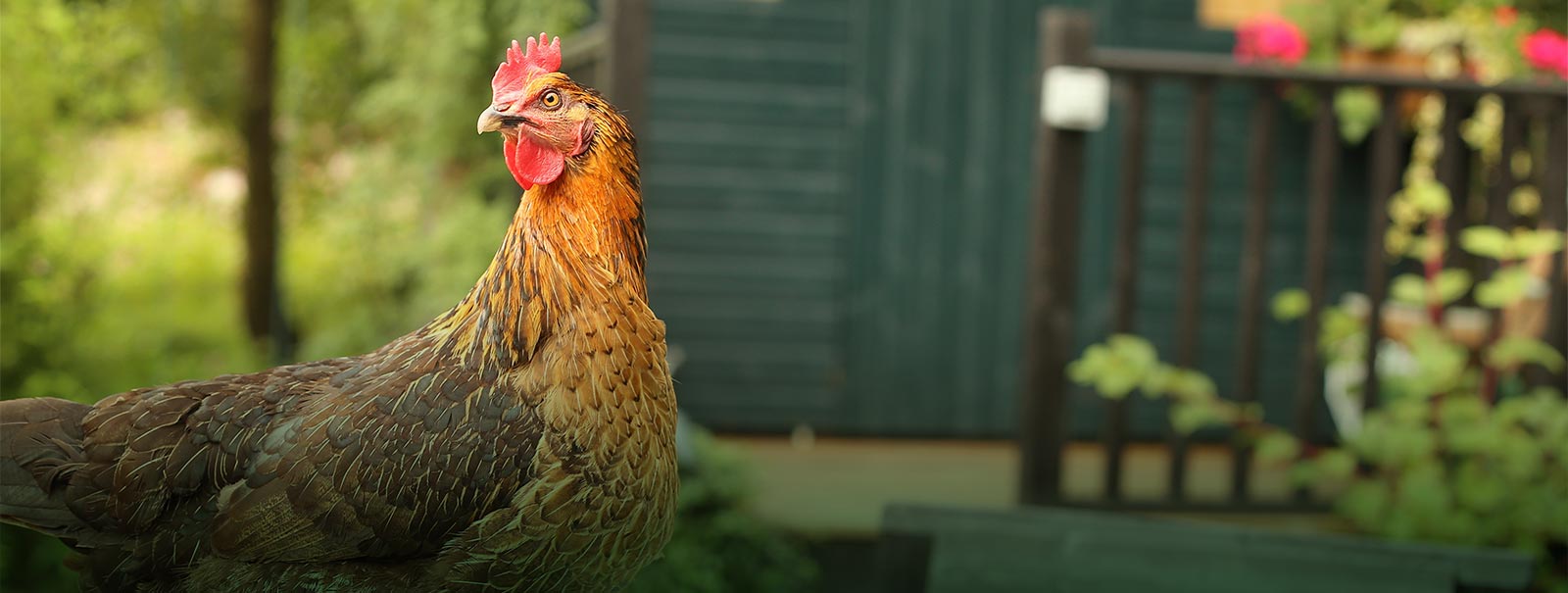
The advice hub Newcastle Disease
Newcastle Disease was first found in Newcastle-upon-Tyne in 1926. The disease is caused by a virus called Avian Paramyxovirus Type 1. This virus not only infects chickens but can affect all other types of poultry and wild birds. However waterfowl tend not to show signs of ill health, therefore they can be silent carriers of the disease.
The virus is spread through the droppings and droplets breathed out by affected birds. Over the next few days the newly infected bird will go on to develop signs of ill health.
What makes Newcastle Disease difficult to diagnose is the fact that there are three main types of the virus each of which affect different parts of the body and go on to show different clinical signs.
- The first type ‘pneumotrophic’ infects the respiratory system of affected birds causing sneezing (snicking), runny nose, runny eyes and a swollen face.
- The ‘neurotrophic’ strain infects the bird’s nervous system causing a twisted neck and paralysis.
- The third type ‘viserotrophic’ affects the bird’s intestines leading to severe diarrhoea.
Certain strains of the disease will affect all three systems of the bird but in general terms all lead to a high number of birds dying. Due to its ability to kill large numbers of birds, Newcastle Disease is a notifiable disease and if you suspect your chickens have the disease or you find a large number of your chickens dying without an explanation then please contact DEFRA. Commercial flocks vaccinate for Newcastle Disease to lower the risk of any incidence and spread.
Control
No treatment for the disease exists. In recent years the control of Newcastle Disease in EU countries has been tackled by a series of legislative directives. These directives lay out the definition of disease, the measures to prevent introduction and spread, and the method of removing disease should an outbreak occur. Farm control is hinged upon biosecurity and vaccination.
Biosecurity
As with all other diseases, thorough cleaning and disinfection can reduce or even prevent any challenges from the disease. Careful sourcing of new stock is vital to avoid buying in disease.
Vaccination
Vaccination is available for flocks, especially commercial flocks. However, factors such as cost and risk of the disease need to be considered. Certain vaccine strains can cause reactions in the birds.
If you suspect your birds have the disease remember it is a notifiable disease. This means, if it is diagnosed, the infected poultry must be culled. Controlled zones around the outbreak will be set up to limit and prevent further spread of disease.
If you suspect that your birds are suffering from any of the clinical signs mentioned then it is important to contact your vet immediately.

